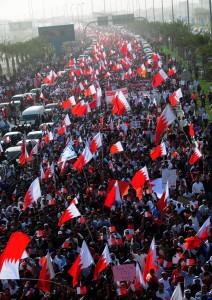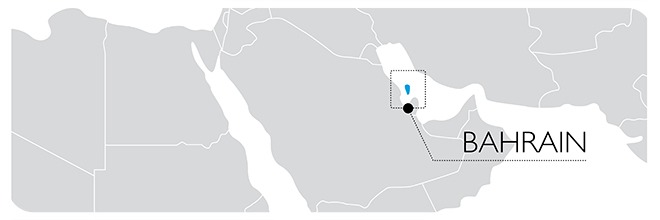The restaurant industry in Bahrain is growing along with a rising demand for dining out. This non-OPEC, oil exporting country also has perhaps the best free market economy in the Middle East, according to a 2013 Economy Freedom Index, making it a great place to invest in the restaurant business.
Challenges to Overcome

In 2011, Bahrain’s economy was hard hit after in-country protests against the monarchy led to disruptions. The economy has stabilized since then, and Bahrain’s Economic Development Board expected GDP to grow 6.2 percent this year. There remains some lingering political instability, but state spending is set to increase 11 percent to invest in pensions for public and private sector retirees as well as social welfare programs.
Western Restaurants Branch Out To Bahrain
U.S. Franchises are doing well in Bahrain, according to a 2012 U.S. Commercial Service report. As of January 2012, there were more than 94 American franchise restaurants in the country. Fast food chains were doing especially well. A good example of this: McDonald’s in Saar inaugurated an upscale “Next Generation” restaurant in April, and all McDonald’s in the country are now open 24 hours a day.
Local Chains Find Success in Bahrain
In February, two Bahrani investors bought up a half-ownership of the popular Saudi chain Hungry Bunny. Hungry Bunny has 38 locations throughout the Middle East. The new investors are building a meat processing plant to supply all the stores and other fast food outlets in Bahrain, many of which are located in mega malls.
There’s also growth for Middle East-based Noodle House, which planned to open three of its restaurants in Bahrain starting in 2012, the first of which was in Seef Mall in the capital city Manama. Malls are just one expanding area for potential restaurants. Bahrain also has numerous four- and five-star hotels throughout the country with more being built every day, which are the perfect venue for upscale restaurants.
Farming Revival
Bahrain’s once prosperous agriculture and farming history had faded since the 1970s. Today however, it is seeing a renewal backed by government support, with more focus in the country on producing food locally. One recent success story came when a large hotel partnered with a nearby farmer to supply the hotel with his produce.
Imports Still Dominate the Restaurant Industry in Bahrain
While there has been increasing efforts to support locally grown and produced food products, Bahrain still imports much of its food supply. Beef imports in particular were on the rise as the number of fast food and quick service restaurants grew. Kraft Foods established a $40 million production plant in Bahrain in 2008.
Ready to learn more about the restaurant industry in Bahrain? Subscribe to our newsletter for the most up-to-date information.

